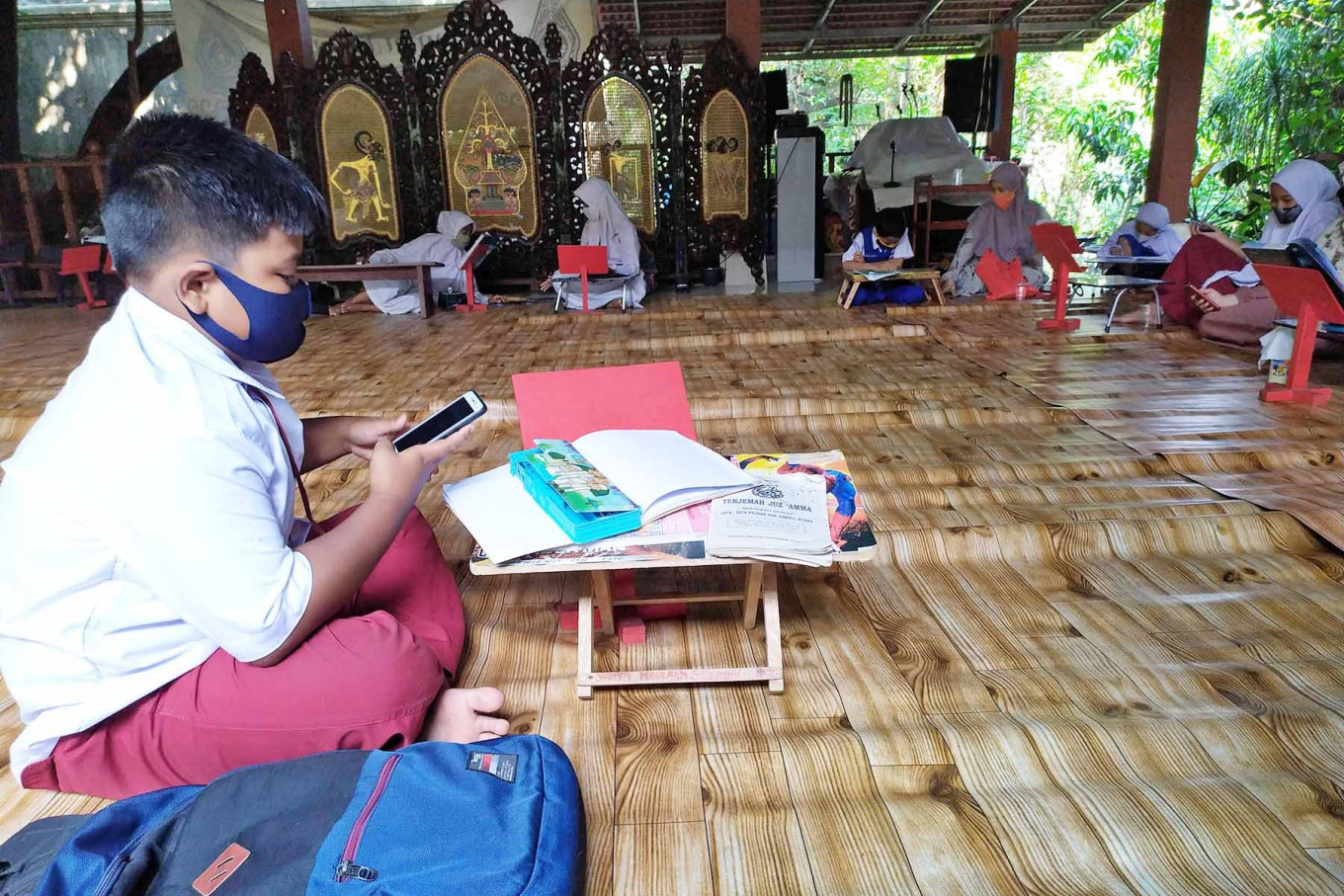Popular Reads
Top Results
Can't find what you're looking for?
View all search resultsPopular Reads
Top Results
Can't find what you're looking for?
View all search resultsPutting children at risk
After nine months, clearly Indonesia has barely made progress in containing the virus, which has now infected more than 520,000 people, killing over 16,500 of them.
Change text size
Gift Premium Articles
to Anyone
B
y allowing local governments to reopen schools soon regardless of the risk level of COVID-19 in the area, the central government is passing the buck to regional heads. The policy change puts the children at risk of contracting the disease, as statistics show an upward, rather than downward, trend in the number of infections.
On Friday new cases of COVID-19 hit a daily record high of 5,828, breaking the previous mark of 5,535 logged on Wednesday. The curve declined a little bit to 4,917 on Thursday, but the country has never seen such a steep rise before.
Jakarta has remained on top, with Central Java beginning to cause concern with new daily cases exceeding 1,000 to rival the capital city. The uptick in Central Java is believed to have something to do with long weekend holiday late last month, when many traveled eastward from high-risk zones like Greater Jakarta.
Smarting from the backlash of the last two long weekend holidays, President Joko “Jokowi” Widodo has decided not to arrange another long holiday between Christmas and New Year. But the next uphill test of the country’s ability to deal with COVID-19 will come on Dec. 9, when regional elections are held in 270 provinces, regencies and mayoralties.
After nine months, clearly Indonesia has barely made progress in containing the virus, which has now infected more than 520,000 people, killing over 16,500 of them. The government may score big in recovery rates, with more than 437,000 patients being cured, but of course prevention is way better than treatment in this health crisis.
No province is now immune from COVID-19, which according to the government has affected 505 regencies and cities across the country. In high-risk areas like Jakarta hospital bed occupancy rates are leaning toward an emergency.
One of the most daunting challenges facing the government in containing the COVID -19 spread is its failure to enforce or to make sure the public complies with the health protocols. The surge in the number of infections post-long holidays was a result of public ignorance about social-distancing measures. In some cases, people violated the health protocols at will because they did not believe the virus is real.
With our COVID-19 response far from adequate, we are going to allow children to resume face-to-face learning, no matter the risks they face. Not only have we failed to set a good example to our children how to coexist with COVID-19 in an appropriate way, i.e. implementing health protocols, we have also been unable to prepare a safe place for them to study in schools.
Heru Purnomo, head of the Federation of Indonesian Teachers Associations (FSGI), has warned that many schools are unprepared for arranging safe learning activities. The association has found that schools have no guidelines on how parents should pick up and drop off their children and how students can maintain social distancing while eating at school.
Some have suggested that schools may reopen after mass vaccinations are performed, but the ideal time for face-to-face learning should only be when the curve of virus transmission has been flattened.










